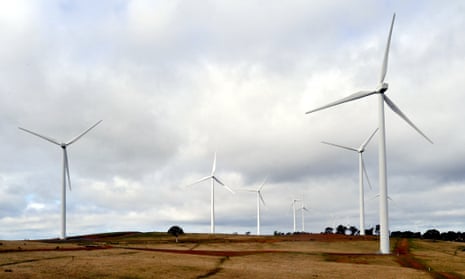There is a pungent aroma emanating from the latest piece of economic work being spruiked by the Australian Chamber of Commerce and Industry (ACCI) about the claimed economic disaster that is befalling the nation, because of the renewable energy target (RET).
Underneath the media statements, there are two unpleasant smells. The first is the unmistakable stench of the garbage assumptions that have been shovelled into the Deloitte economic black box. The second is a subtle whiff of desperation that comes from a group of big business and their lobby groups that find themselves backed into a corner.
As the Dick Warburton-led RET review has unfolded over the last few months we have seen numerous economic assessments of this critically important and already successful initiative. Most of these assessments have focused on the likely impact on retail electricity bills.
Publically released reports by Roam, SKM, IES, Schneider Electric and the government’s own modelling conducted as part of the RET review, confirm that the RET is increasing competition in the energy generation sector, suppressing wholesale electricity prices and driving lower retail electricity bills as a result.
Another key finding that is revealed from this vast body of work is that the losers from having more renewable energy are the big energy companies. In fact, the Deloitte report reveals that if the RET were reduced, revenues for existing fossil fuel generators would increase by up to $5.652 billion, while greenhouse gas emissions would skyrocket by 8%.
The overwhelming weight of evidence against their vested interests has obviously sent a wave of panic through the likes of ACCI and other sponsors of the Deloitte work, the Business Council of Australia and the Minerals Council of Australia.
It would appear that ACCI and their mates, having seen that rational, logical assumptions would not deliver the answer they were after, have directed Deloitte to include what many would claim to be quite heroic assumptions.
For example, the Deloitte report assumes that gas prices will fall below the expected trend when every other credible industry body knows they are increasing. They also utilise out of date renewable technology costs and assume they will increase, when they have consistently fallen over the past decade and, according to the International Energy Agency, are expected to fall over the decade to come.
These are two glaring examples of where the assumptions used in the Deloitte work diverge from reality and really should have been consigned to the wheelie bin.
But you don’t have to rely on a battle of economic models to understand that ACCI and their friends have force-fed the Deloitte model a constant diet of rubbish. Just recently, Ipart in New South Wales released their gas price determination for the next two years. This price determination indicates an increase in gas prices for an average residential customer over the next two years will be between $136 per annum to $230 per annum.
At least Deloitte recognise that differences in assumptions such as these will have a significant impact on the results. The admission that they were not asked to model the broader benefits of the RET, such as industry development, nor were they asked to assess the environmental costs and benefits of abolishing the RET, are also telling admissions.
Given all of this, it’s difficult to take any of the findings of this report seriously. However, despite what is clearly an economic study designed to justify a pre-determined view and an act of desperation from ACCI and their mates to demonise renewable energy, the unbearable economic impact that we will suffer amounts to $1 per week. Seriously, it costs more than that to have my local council come and empty my rubbish bin every week. At least I know where they are leaving the contents.
